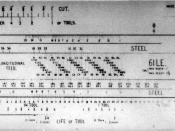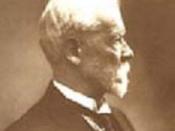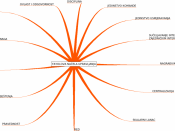Explain how the managerial ideas of Taylor and Fayol differ from Mayo.
The Classical Management approach attempted to apply logic and scientific methods to management of complex organisations, such as factories. It assumed that there was "one best way" to manage an enterprise. Classical Management comprises three different approaches:
÷ Scientific Management, which represents Frederick W Taylor's work, developed scientific principles of management, focusing on the individual, rather than the team and aimed to improve efficiency through production-line time studies, breaking each job down into its components and designing the quickest and best methods of performing each component. He also encouraged employers to reward productivity. Employees did the physical labour, managers did the planning and organising. According to Taylor, employees were motivated by money. From Taylor's research emerged time studies, work studies and industrial engineering, making an important contribution to the central procedures of many organisations.
÷ Bureaucratic Management emerged from the work of Max Weber, who developed an "ideal model" organisation, hierarchical in structure, governed by a set of impersonal, formal rules and policies.
Weber believed this was the most efficient way to organise and govern an enterprise.
÷ Henri Fayol's Administrative Management assumed that 14 general principles of management could be applied to any situation or circumstance:
1. division of work
2. authority
3. discipline
4. unity of command
5. unity of direction
6. subordination of individual interest to the common good
7. remuneration
8. centralisation
9. hierarchy
10. order
11. equity
12. stability of staff
13. initiative
14. espirit de corps
Fayol divided managerial activities into five functions: planning, organising, commanding, coordinating and controlling. This idea set the basis for many modern management techniques stressing rational central planning.
The Human Relations approach, focusing on work relationships as the key to improving workplace productivity, was inspired by...


